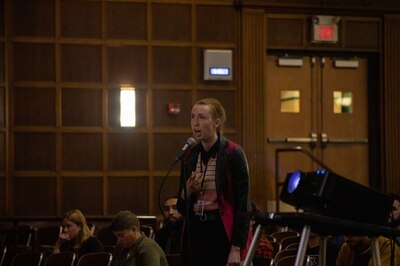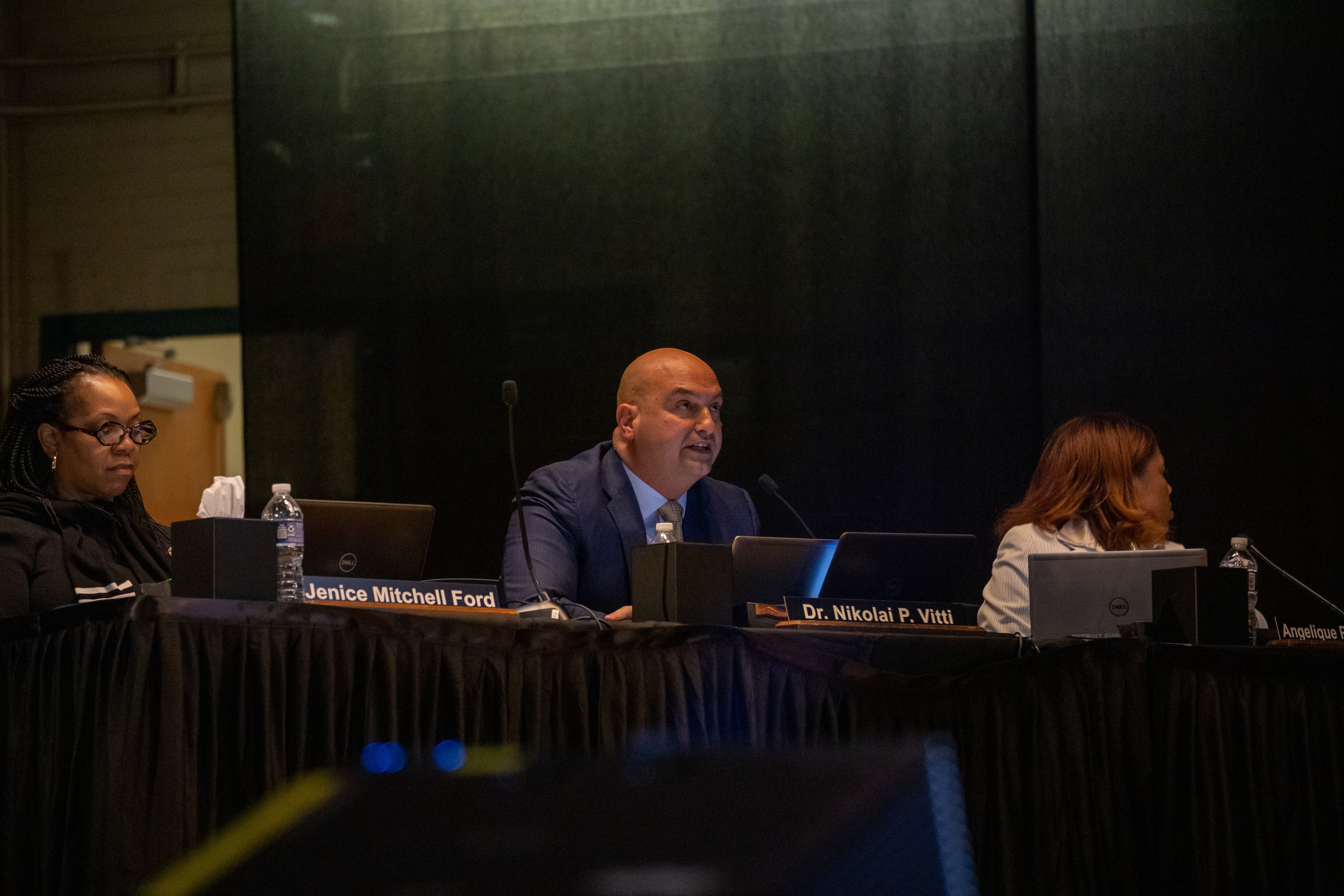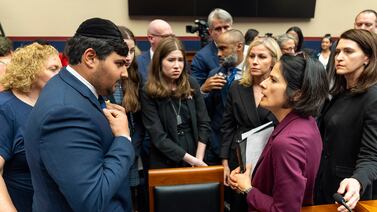The Detroit school board approved a $1.138 billion budget for the coming academic year that cuts spending by roughly $300 million from last year, accounting for a pandemic-fueled enrollment decline and the depletion of federal COVID relief aid.
Tuesday’s 6-1 vote came amid dissent from district staff, parents, and community members over the budget cuts, and concludes a monthslong public discourse over the Detroit Public Schools Community District’s proposal to eliminate over 300 positions to help stabilize its finances. The cuts largely affect central office administrators, but also target school-based employees such as deans, assistant principals, college transition advisers, school culture facilitators, and kindergarten paraeducators.
“What you see before us today, is the best thinking on the very tough decision that we’re in with the loss in enrollment,” said board President Angelique Peterson-Mayberry.
The lone no vote came from board member Sherry Gay-Dagnogo.
“To say that we’ve balanced the budget … but have we balanced true academic achievement? I’m not so sure that this budget does that,” Gay-Dagnogo said ahead of the vote.
The budget is expected to cut roughly $36 million in recurring salary and benefit costs, according to a budget presentation.
Vitti says fewer than 25 employees face layoff
DPSCD Superintendent Nikolai Vitti was talking with school board members about the budget cuts at least as far back as February, making it clear that the district would have to make hard decisions because of the lack of federal COVID relief aid, a decline in student enrollment, and increases in employee salaries, health care costs, and inflation. In some cases, the district scaled back its initially proposed cuts, for example, sparing school attendance agents.
In early May, Vitti received approval from the school board to send layoff notices to all targeted employees.
The cutbacks have drawn sharp criticism from affected staff as well as students, parents, and community members concerned about the potential short- and long-term effects on students and other educators.
On Tuesday, Vitti said that without a more equitable formula for state school funding, DPSCD will have to consider tough tradeoffs year after year.
Michigan’s system allocates school funding on a per-pupil basis, but still allows for disparities in spending between poorer and wealthier districts. Recent studies have called for changing the system to address those disparities and better account for the needs of students, and the Michigan Legislature is considering measures that would help bridge the gap.
“We are not equally and equitably funded to provide everything that our children deserve, but I do think the board and I try to do the best with the resources we have,” said Vitti.
“This is not a new problem. This is a decades-long problem,” he added. “I hope all the energy that is directed toward me and the board is also directed toward the governor and the Legislature.”
Under the district’s budget proposal, two-thirds of the affected staff members had the chance to apply for other district jobs, at equal or similar wages. Vitti estimated that fewer than 25 employees could face a layoff by the end of the month if they don’t accept the district’s offer. The majority of targeted employees had their positions funded by their individual school, moved to another district job, resigned, or accepted a severance package, he added.
“By the time we get to the end of June, there may be five people that have not actively taken a severance or selected another position,” Vitti said, noting that DPSCD officials had negotiated with the district’s teachers union for a specific severance amount.
But some public commenters on Tuesday pushed back against his explanation.
“Many have accepted the positions, but it is by force and not by choice,” said Lakia Wilson-Lumpkins, president of the Detroit Federation of Teachers.
“My fear tonight is that in August, when our children return, schools will be so understaffed, we will see our schoolchildren, our parents, our teachers, counselors, and many other positions and possibly stakeholders make choices with their feet to leave.”
Han Langsdorf, a day-to-day substitute teacher for the district, noted that one of the positions offered to support staff whose jobs were cut was day-to-day sub, which does not provide benefits.
“These layoffs did not need to happen,” said Langsdorf, who was sitting with a small group of DFT members near the front of the auditorium. “They caused a lot of stress, and educators do not get the respect they deserve.”

Marcus Walton, a DFT executive board member and teacher at the Jerry L. White Center, a high school for students with disabilities, said the support staff targeted in the budget cuts are the people students need the most.
“You elected officials, you’re going to value our children as much as we value them,” he said. “That’s why I stayed here after 30 years, because I care about the students. So, am I tired? Hell yeah, but I’m not going to give up.”
District faces rising costs as COVID aid runs out
Employee salaries and utilities costs are expected to rise by 5% next year, according to the district’s budget projections. Individual schools will continue to have after-school math and literacy tutoring, mental health support, field trips, and school-based intervention. But the district will no longer allocate funding toward expanded summer school and a nurse in every school building.
DPSCD has already spent or allocated the $1.27 billion in COVID funding it received to help students recover from the pandemic, with about $700 million earmarked for a multiyear plan to rebuild, renovate and phase out school buildings across the city.
The end of that funding stream will hit the district hard, because one of its main remaining sources of revenue is state aid based on enrollment. The district currently has about 48,000 students, down from 50,400 students before the pandemic. That decline of roughly 2,000 students equates to roughly $20 million in lost enrollment-based funding.
DPSCD officials, however, are anticipating a windfall from Lansing. School aid budgets under discussion in the Legislature would provide the district with an increase in per-pupil funding of more than $450, and a separate appropriation of $94.4 million to settle a 2016 “right to read” lawsuit against the state.
Vitti said those dollars could help the district bring back some of its COVID-funded initiatives, and place security guards at smaller schools.
Ethan Bakuli is a reporter for Chalkbeat Detroit covering Detroit Public Schools Community District. Contact Ethan at ebakuli@chalkbeat.org.
Micah Walker is a reporter for BridgeDetroit, where she covers arts, culture, and education. Contact Micah at mwalker@bridgedetroit.com.








